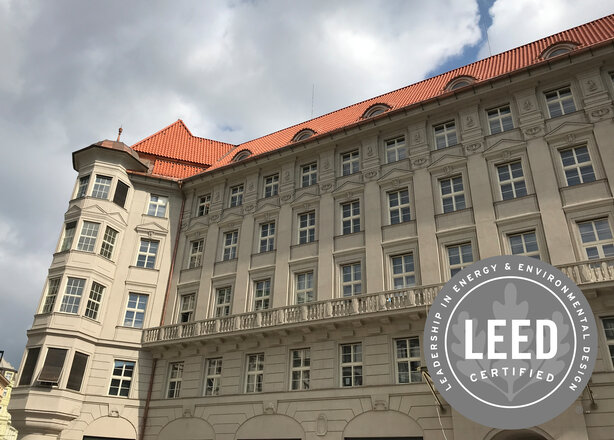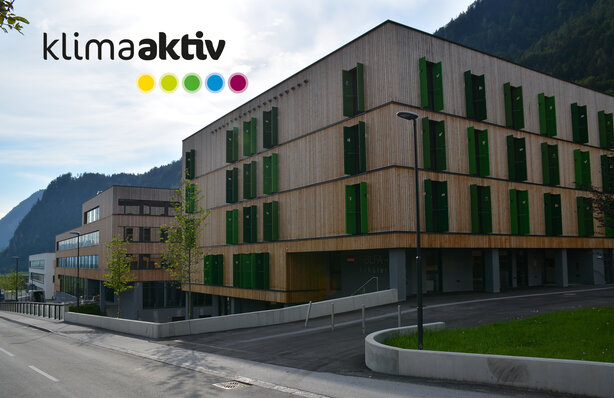Sustainably certified
Building certifications serve to confirm that a construction scheme is fit for the future from an ecological perspective. pde’s sustainability department is actively involved in the ongoing development of leading certification systems. We assist clients in obtaining certification for their building construction projects and offer other customised certification-related services – ongoing support, from conception to completion, as illustrated by the following three examples.
We discuss the certification requirements with our clients, define specific measures, and document everything for the certification body. Our services help our clients achieve and even optimise their sustainability goals. The following projects, which were certified according to different systems, are ample proof of this.

LEED: Sugar Palace Prague
Built between 1912 and 1916 for the Sugar Industry Insurance Association, the listed building is being converted into a luxurious hotel. We are assisting the client in obtaining LEED Gold certification for the project. The state-of-the-art technical building facilities, a cogeneration unit, watersaving fittings, and an energy monitoring system contribute to efficiency and sustainability. In addition, any new building materials will be checked for ecological compatibility.
klimaaktiv gold: HBLFA Tyrol
The new technical training and research facility HBLFA (Höhere Bundeslehr- und Forschungsanstalt) in Rotholz, Tyrol, is being constructed as a timber hybrid building. The thermally optimised building envelope, combined with efficient building engineering systems and a 75kWp photovoltaic plant, secured the klimaaktiv building certification in gold for the teaching and student accommodation units. pde supported the project from the planning stage to the official opening. Measures such as building product management, i.e. using building products that are free from HFCs and PVCs, and low in pollutants, thermal performance simulations, and optimising the energy performance of the building envelope were all provided from a single source and contributed to fulfilling the client’s requirements. Quality assurance was carried out by means of various measurements, for example BlowerDoor and indoor air pollutant measurements, as part of the klimaaktiv verification process.
 © Ronald Zecha
© Ronald Zecha
 © Clarissa Hoebinger M.A. / FWAG
© Clarissa Hoebinger M.A. / FWAG
DGNB platinum: Office Park 4 at Vienna Airport
For the construction of the office spaces and co-working areas in the Airport City, we used dynamic building simulations during the planning process to ensure the optimal selection of energy sources for heating and cooling. But that’s not all. We also optimised the building engineering systems to facilitate load management during ongoing use – maximum loads for district heating, district cooling, heat pumps, and electrical loads. This allowed us to drastically reduce the ongoing operating costs. We succeeded in improving the indoor air quality by selecting solvent-free and low-pollutant building products, and ancillary and installation materials. Office Park 4 is the first building to be awarded a platinum rating under the new 2017 version of the OGNI DGNB core system.